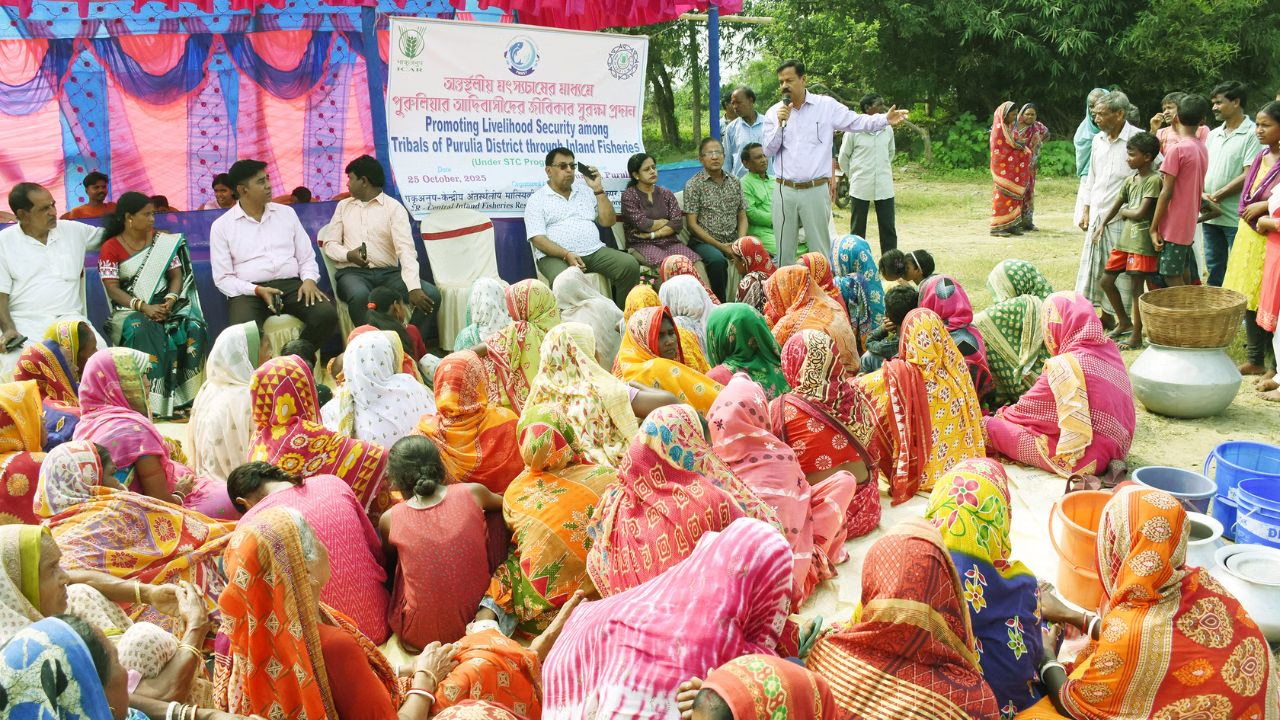Sunday, 22 February 2026

In a landmark move toward inclusive rural development, the ICAR–Central Inland Fisheries Research Institute (ICAR-CIFRI), Barrackpore, has launched a community-based aquaculture initiative in Purulia, West Bengal, to empower tribal women through sustainable fish farming.
Implemented under the Scheduled Tribe Component (STC), the programme integrates scientific aquaculture, income generation, and nutritional enhancement, directly benefiting over 500 tribal families. The initiative targets the drought-prone Chotanagpur Plateau region—where nearly 18.45 per cent of residents belong to tribal communities—with an emphasis on strengthening women’s participation in the blue economy.
Aligning with Sustainable Development Goal 5 (SDG 5) on gender equality, the project spans Puncha, Manbazar, and adjoining blocks, introducing community-managed fish farming in locally available rainfed water bodies, or bandhs. Sixteen such bandhs, covering 140 acres, have been brought under scientific fish culture through 48 women-led Self-Help Groups (SHGs).
To enable the transition, ICAR-CIFRI supplied 1,600 kg of quality fish seed and 22 tonnes of CIFRI cage grow feed, while conducting hands-on training in pond management, water quality control, and feeding practices. The institute also distributed four FRP boats and organized awareness camps in partnership with the local NGO May I Help.
Sandhyarani Tudu, Minister of State (Independent Charge), Paschimanchal Unnayan Affairs, Government of West Bengal, and Dr. B.K. Das, Director, ICAR-CIFRI, inaugurated the initiative, commending the effort to integrate women into profitable and climate-resilient aquaculture systems.
A unique feature of the programme is its nutrition-linked livelihood model—where 50 per cent of the fish harvest from SHGs will supply local schools’ mid-day meal schemes, enhancing protein intake among tribal children.
In addition, ICAR-CIFRI distributed FRP tanks and ornamental fish kits, including aerators, feed, and livebearer fishes, to promote backyard aquaculture and supplementary income among tribal women in Govindapur.
Dr. Das noted, “Empowering women through fisheries is not just about livelihood—it’s about transforming communities. By building capacity and self-reliance, we are creating a sustainable model for inclusive rural growth.”
With tangible benefits already reaching 511 marginalized tribal families, the initiative marks a significant stride toward Atmanirbhar Bharat, blending technology, gender inclusion, and nutrition security in one integrated aquaculture framework.